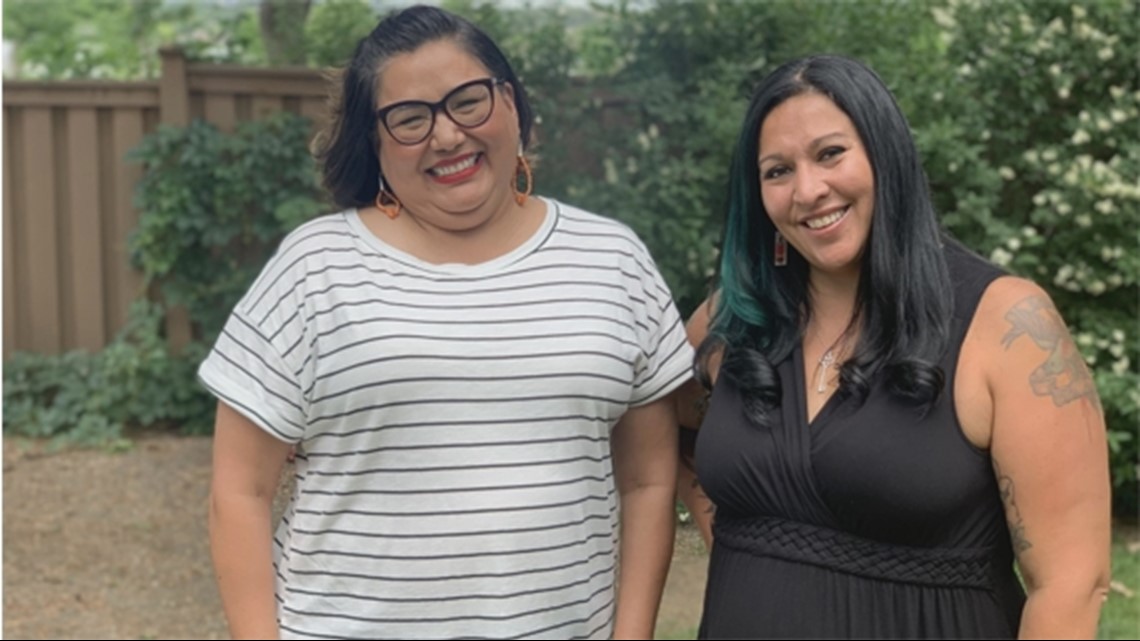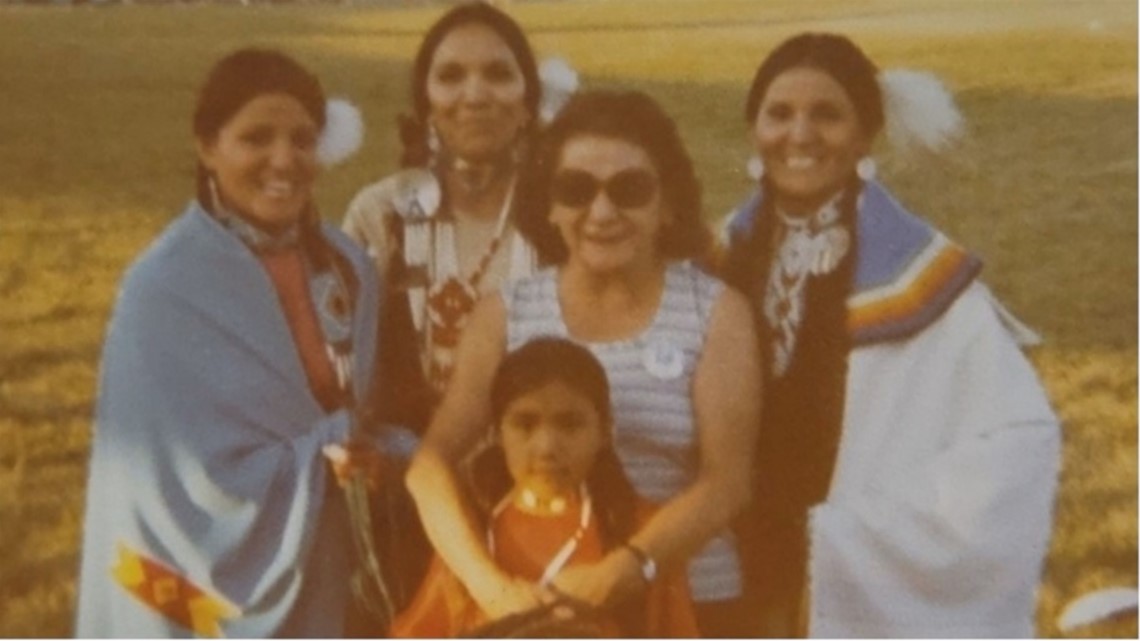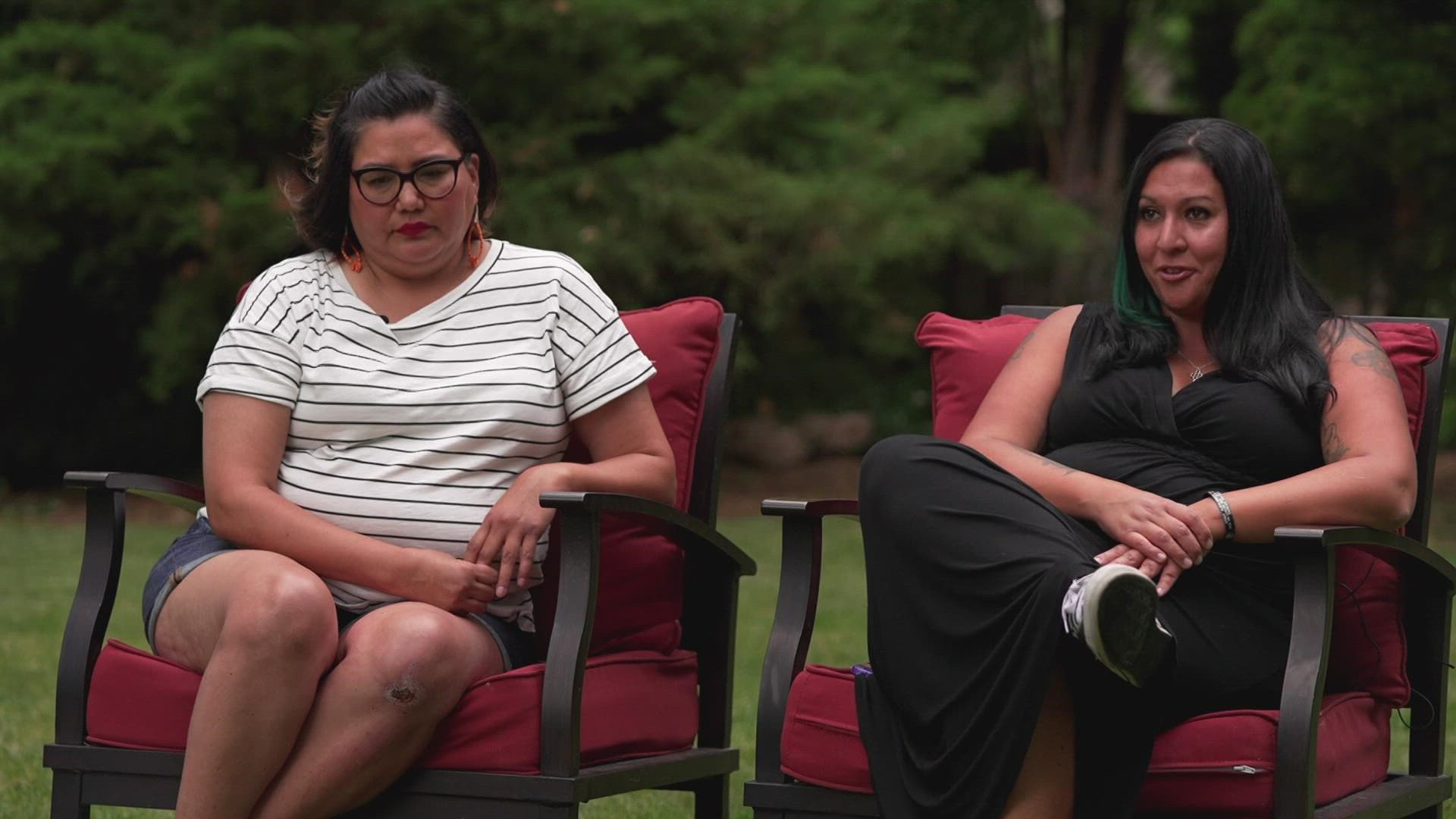DENVER — Gov. Jared Polis continues to sign bills passed in the most recent Colorado legislative session, including one that will create the Office of Liaison for Missing and Murdered Indigenous Relatives.
"It's one of those things where we have this victory ahead of us, which now signifies this is when the real work begins," said Raven Payment, who serves on the Denver American Indian Commission.
Beside her sits Donna Chrisjohn, who also serves on the commission, as well as on the Board of Directors for Chinook Fund and People of the Sacred Land.
Chrisjohn and Payment both worked with lawmakers to help pass the bill.
"It is a long road, yes," Chrisjohn said. "Even ahead of us, we have a long road and continued work not only on this bill and with this office and the governmental agencies that are going to support it, but then also within our community and making sure that we are helping families with their missing and murdered loved ones."


What the office will do
According to a spokesperson for Polis' office, the legislation allocates $497,250 for the budget for fiscal year 2022-23.
The office will be under the Department of Public Safety and, among other things, requires the Colorado Bureau of Investigation to work with the office and federal, state, tribal and local law enforcement agencies for the efficient investigation of missing or murdered indigenous persons, according to a summary of the bill.
The bill includes the creation of a dashboard to display information regarding missing or murdered indigenous persons.
The executive director of CDPS will appoint a director of the office. That director will serve as a liaison on behalf of the Indigenous community on issues related to missing or murdered Indigenous relatives, support the advisory board and carry out the duties assigned by the Executive Director. The director may appoint staff as necessary to carry out duties of the office, according to the spokesperson.
The Missing and Murdered Indigenous Relatives unit at the Colorado Bureau of Investigation would be comprised of staff who have experience working with Tribal and American Indian/Alaska Native communities.
Both Chrisjohn and Payment said it's a step in the right direction, but there is still a long way to go.
"So essentially if you learn how to respect Indigenous people and value us on a basic level of equitable humanity, these things will start to become a solvable crisis and no longer a crisis. And we can begin actually healing and moving forward and thriving instead of just surviving," Payment said.
"I do anticipate pushback. I do anticipate a long, arduous road to getting some things done. But I am hopeful that with this establishment it does change that outlook," Chrisjohn said.
In March, the CBI said they had 17 active cases of missing Indigenous people in Colorado.


'Representation matters'
While both Chrisjohn and Payment have different tribal affiliations, they faced the same dangers growing up.
"Growing up, my mom had always told me that I couldn't go anywhere alone. I feel like that impacted not only myself, but my entire family," Chrisjohn said, adding that she has family members who have gone missing and been murdered.
"It was conditioned from my family as a woman that I was vulnerable, that I was a target," Payment said. "The names of these relatives on this list, they're more than names. I know their stories. I know their pictures when we see them on signs and posters."
As previously reported, there was pushback against the bill, and a proposed different direction for it.
In mid-April, Lt. Gov. Dianne Primavera wrote a letter to lawmakers expressing support for the cause, but instead suggested using already-existing resources, including engaging with the already-existing Colorado Commission on Indian Affairs.
"While CBI would work immediately to dedicate resources to casework, CCIA would be the appropriate office to establish a time-limited Task Force to examine the wider issues that contribute to MMIR and to develop a set of recommendations for how the State can successfully bring justice to MMIR and their families," the letter read in part.
In the end, Chrisjohn said the set foundation of a separate office is important.
"And the only way that this was going to be addressed properly and in a way that's culturally supportive for our communities is to create an office that is run by our own people to address this issue and to have somebody who can make those connections between the state, the tribe and the families," she said. "Representation matters, and it matters in the classroom as much as it matters in your workplace. And it works and it matters in supporting families and especially in sensitive issues such as this."
SUGGESTED VIDEOS: Politics

